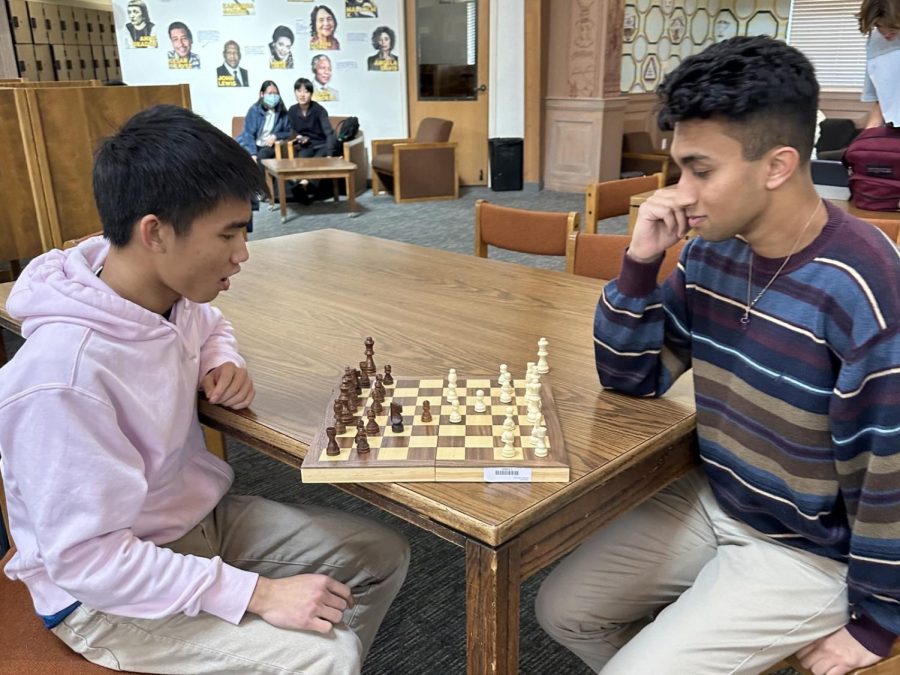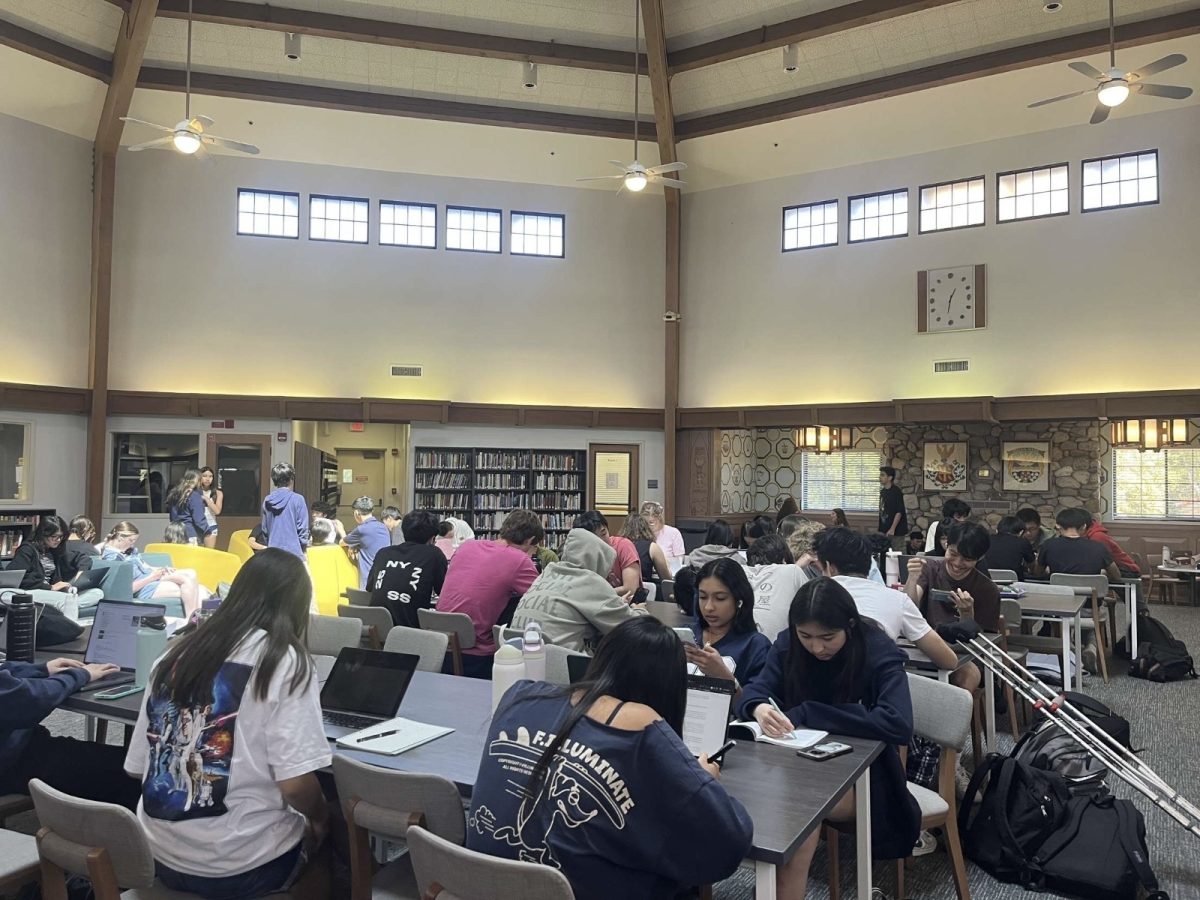A new pandemic has struck Webb, one that has nothing to do with COVID-19 or any other illness. It is a fascination with chess, a timeless game that has captivated people of all ages and skill levels for centuries.
Upon returning from winter break, a new trend began to emerge within certain small groups of students, gradually spreading to a significant portion of the student body.
This unexpected popularity boom in a classic and complex game seems to have come out of nowhere. But taking a closer look, there are likely several factors that led to this.
“I never expected so many people to be playing chess like this,” said Jacob Zhang (‘26), an avid chess player who grew up playing the game. “It’s a strange, but a great surprise in my opinion.”
The reason for chess’s popularity at Webb is the result of a copycat effect: It all begins with one friend challenging another to play. As others observe them playing, they become curious and intrigued, leading to an increase in interest and participation.
Some students attest that they began playing after seeing their friends playing in communal spaces such as the library.
“I started playing chess because I was curious about what all my friends were raving about during lunch,” said Emily Huang (‘23). “I have always wanted to get better at chess, so I thought playing with my friends would be fun and instructive.”
Chess is believed to have originated in Northern India in the 6th century, evolving from a game called chaturanga. The game spread to Persia and then to the Islamic world, where it was further developed and refined. From there, it spread to Europe during the medieval era and became popular among the aristocracy. The modern rules of chess were standardized in the 19th century, and the game has since become a globally popular pastime, with millions of players and numerous international tournaments held each year.
Although chess has always been popular, more people are playing than ever before. Since January of 2020, more than 102 million people have signed up on Chess.com, the most popular platform for online chess. On January 20th of 2023, Chess.com recorded its highest number of active users, with over 10 million people playing.
The sudden surge of popularity in chess can be credited to its recent mainstream acceptance, which was largely driven by the success of the Netflix series, The Queen’s Gambit, which premiered in 2020. This has sparked a renewed interest in the game and inspired more people to take up chess and led to a subsequent increase in content creation on various social media platforms such as YouTube, TikTok, and Twitch.
“I saw a bunch of TikTok’s of chess and I thought I should start playing again,” said Chance Rebish (‘23).
Along with The Queen’s Gambit, recent drama and cheating scandals in the competitive chess world led to a lot of media coverage on the game.
“I got back into chess with this recent new wave of chess that’s come in, and I think that renewed interest stems from this really fun culture that comes from chess that’s at Webb,” said Viraj Nigam (‘23). “I just think it’s really cool how everyone is playing and learning from each other.”
How people learn and grow from each other while playing can be compared to the learning environment at Webb, perhaps explaining why Webb students find comfort and familiarity in chess.
Some students have even stated their interest in a potential chess-related afternoon activity, such as Clarence Deng (‘23), a long-time chess player.
“Having a chess afternoon activity would be great for the community,” Clarence said. “It would embrace deeper thinking and healthy mental competition. Many Webbies already are passionate about the game so there would be many excited participants.”
Whether Webb is able to formally provide more opportunities for students to grow and practice their chess skills, one thing is certain: the impact that chess continues to have on Webbies’ lives outside of academics is not diminishing anytime soon.
Considering the many intellectual benefits of playing chess, including increased creativity and problem-solving skills, Webb students can look forward to developing their chess capabilities and potential new friendships with the rise of this unusual new trend.










